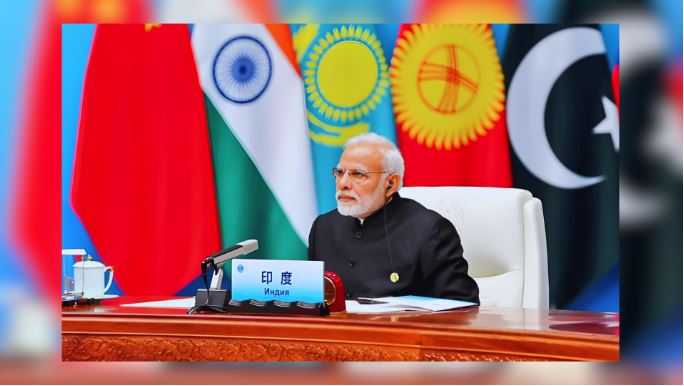
The possibility of Indian Prime Minister Narendra Modi attending the Shanghai Cooperation Organisation (SCO) summit in Islamabad this October seems bleak. Despite Pakistan’s official invitation, India’s Ministry of External Affairs has remained non-committal. This lukewarm response indicates that the frozen diplomatic ties between the two nuclear-armed neighbors are unlikely to thaw anytime soon. While the summit could have been an opportunity for regional cooperation and dialogue, India’s reluctance is dampening hopes for a more peaceful and cooperative South Asia.
On August 30, Pakistan extended a formal invitation to India to attend the SCO summit. However, India has yet to confirm whether it will send its prime minister or a lower-level delegation, if at all. Former Pakistani diplomat Maleeha Lodhi remarked that New Delhi’s indecision suggests Modi will likely skip the event. This lack of participation further underscores the stagnation in India-Pakistan relations, which have remained tense since India’s unilateral revocation of Jammu and Kashmir’s special status in 2019. India’s External Affairs Minister S. Jaishankar recently declared that the “era of uninterrupted dialogue with Pakistan is over,” and India will now react more assertively to events. This statement further signaled India’s unwillingness to re-engage diplomatically without substantive changes on Pakistan’s side, particularly concerning what India perceives as continued support for cross-border terrorism. Former Indian diplomat Anil Trigunayat echoed this view, stressing that cross-border terrorism is the “fundamental redline” in bilateral relations.
The SCO summit was initially viewed as a potential platform for re-engagement between India and Pakistan. Pakistan’s former foreign minister, Bilawal Bhutto Zardari, had participated in an SCO conclave in India earlier this year, and current Foreign Minister Ishaq Dar hinted in March that Pakistan might reconsider its trade relations with India. However, New Delhi has shown no signs of reciprocating these overtures.
India’s unwillingness to seize such opportunities is disturbing possibilities of regional cooperation and peace. The SCO, which includes major players like China, Russia, and Central Asian nations, offers a multilateral setting that could have helped break the diplomatic deadlock. Instead, India’s reluctance risks further isolating both nations in their respective regional and global strategies. Michael Kugelman, director of the Wilson Center’s South Asia Institute, noted that while the frozen relationship has paralyzed the South Asian Association for Regional Cooperation (SAARC), the SCO has more resilience due to its broader scope and the influence of powers like China and Russia. However, the ongoing standoff between India and Pakistan could still cast a shadow over the SCO’s ability to foster regional cooperation in South Asia.
The geopolitical climate in South Asia remains in a state of “no-war, no-peace,” with tensions simmering beneath the surface. Hamid Mir, a senior Pakistani journalist, believes that despite the current impasse, the future holds promise for a more peaceful relationship between India and Pakistan. He envisions a future where soft borders emerge in the region, perhaps even similar to the European Union’s open-border policies. Mir’s optimism contrasts sharply with India’s immediate concerns. With upcoming elections in Jammu and Kashmir, set for October 4, the Indian government is focused on preventing any major terrorist incidents that could disrupt the process. Former Indian diplomat Ajay Bisaria has pointed out that New Delhi is unwilling to make any major diplomatic moves until the elections are over and the security situation stabilizes.
The SCO summit in Islamabad could have been a rare opportunity for India and Pakistan to at least begin normalizing ties in a multilateral setting. The SCO has served as a platform for India and Pakistan to interact in the past, with the most notable example being the 2015 summit in Russia, where both nations issued a joint statement. However, as tensions continue to simmer, it appears that this year’s summit will not bring the same diplomatic breakthrough. India’s refusal to engage with Pakistan is not without precedent. Modi accepted an invitation to attend the 2016 SAARC summit in Pakistan, but the event was ultimately postponed indefinitely after a militant attack on an Indian military base in Jammu and Kashmir that left 19 soldiers dead. Several other SAARC members followed India’s lead in boycotting the summit, effectively rendering the organization inactive.
The lack of willingness from India to engage with Pakistan not only hampers prospects for bilateral peace but also risks undermining regional stability. As both nations continue to prioritize security over dialogue, South Asia remains in a precarious state of suspended conflict, with the potential for escalation always looming on the horizon. In the absence of meaningful dialogue, opportunities for cooperation—such as the SCO—are increasingly being squandered, leaving the region’s future uncertain.

